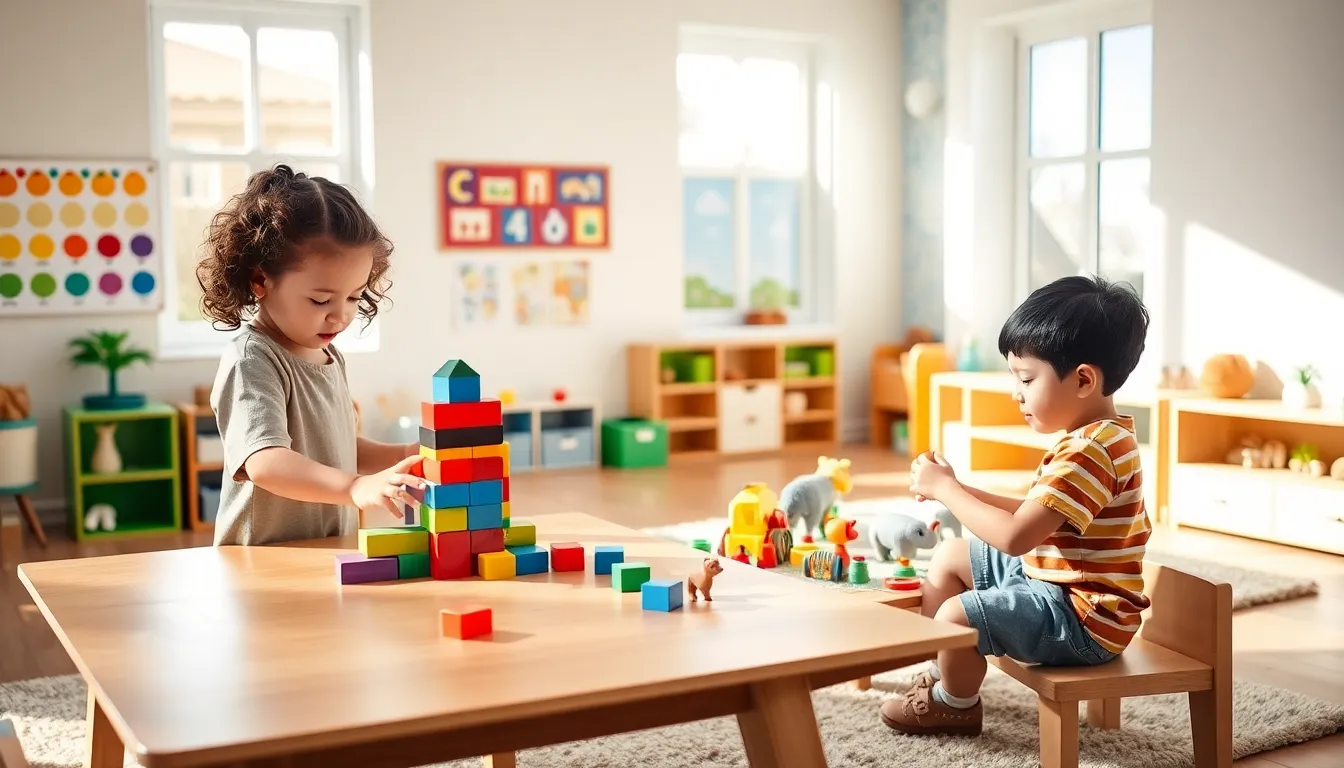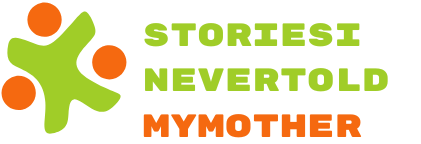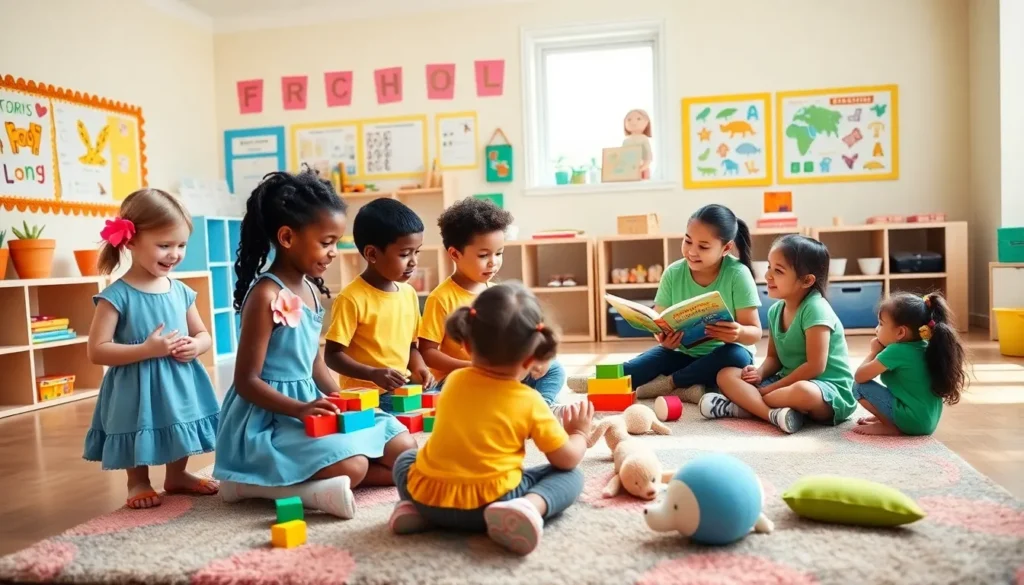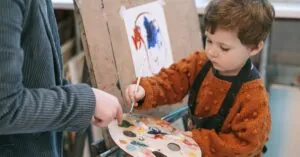Table of Contents
ToggleWondering if your little one is ready for preschool? You’re not alone. In a world where kids can be anything from future astronauts to pastry chefs, preschool is the magical place that lays the foundation for their learning journey. Think of it as the first step on a grand adventure, full of alphabet soup and artsy finger paints. Today, let’s jump into why preschool is important and how to choose the right one for your budding genius.
Understanding the Importance of Preschool Education

Preschool isn’t just a place to drop off your child while you run errands: it’s a critical step in their early education journey. At this stage, children experience a blend of structured learning and play that nurtures their cognitive, social, and emotional development. Studies indicate that kids who attend preschool have better academic outcomes in the long run. They’re not just learning shapes and colors: they’re also picking up essential life skills.
In preschool, children are exposed to a rich environment where creativity thrives, curiosity is encouraged, and friendships are forged. This prepares them for the complexities of future educational challenges. Whether they’re building blocks or playing pretend, they’re honing skills that will serve them for a lifetime.
Developmental Benefits of Attending Preschool
The early years are crucial for brain development. At First Steps Preschool, children participate in activities designed to spark their interest and foster their natural curiosity. Through games, stories, and group projects, they develop critical thinking skills and enhance their cognitive abilities. Research shows that preschool helps to improve academic readiness by cultivating literacy and numeracy skills in fun, interactive ways.
Beyond the academics, attending preschool also fosters emotional intelligence. Kids learn to express their feelings, manage emotions, and engage in problem-solving with their peers. This combination of social-emotional and cognitive development lays the groundwork for successful interactions in kindergarten and beyond. With early exposure to diverse experiences, children become well-rounded individuals.
Choosing the Right Preschool for Your Child
Finding the perfect preschool can feel like searching for a needle in a haystack, but it doesn’t have to be that stressful. Start by identifying your child’s needs and personality. Some kids thrive in a play-centric environment, while others may prefer a curriculum that emphasizes more structured learning.
Visit potential preschools and pay attention to amenities, the vibe of the facility, and how staff interacts with the children. Look for programs that focus on children’s unique abilities and interests. Key features like a low student-to-teacher ratio or a diverse array of activities can make a big difference in your child’s experience. Also, don’t overlook the importance of certified and compassionate staff members.
Curriculum and Activities in First Steps Preschool
A well-rounded curriculum is the heartbeat of First Steps Preschool. It balances academic lessons with playful activities to ensure holistic development.
Preparing Your Child for Preschool
Before joining, it’s helpful to prepare your little one for this exciting transition. Engage them in playdates to encourage social skills and introduce them to new stories and games that they might encounter in class. Establishing a routine can also help ease any anxiety about the new environment.
Socialization and Independence Skills
During their time in preschool, children build valuable social skills through group activities, fostering teamwork and cooperation. They also learn independence through daily tasks like putting on their coats and organizing their belongings. These experiences not only instill confidence but also set the stage for future successes in school.
Fostering a Love for Learning
Preschool is about more than following directions or memorizing facts: it’s about nurturing a genuine love for learning. At First Steps Preschool, activities are designed to spark curiosity and ignite imagination. Whether it’s through storytelling, hands-on experiments, or art projects, children are encouraged to explore their interests.
This early enthusiasm for discovery encourages children to become lifelong learners. They’ll develop a positive attitude toward education, making the transition into more formal schooling much smoother.
Transitioning to Kindergarten from Preschool
Transitioning to kindergarten can be a big leap for children and parents alike. Thankfully, preschools like First Steps are designed with this transition in mind. The skills gained during preschool provide a solid foundation for kindergarten readiness.
Teachers work collaboratively to prepare students for what they will encounter in their next schooling phase. Engaging with literacy, math, and social skills at an early age makes moving to kindergarten a natural progression. Parents can also play their part by establishing a supportive environment at home and communicating openly with teachers during this period.




